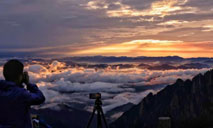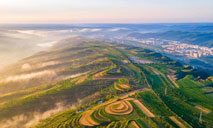Science essential to determine COVID-19 origins: U.S. scholar

People tour the National Mall in Washington D.C., the United States, on March 13, 2021. (Photo by Ting Shen/Xinhua)
"We believe the strongest clue from new, credible, and peer-reviewed evidence in the scientific literature is that the virus evolved in nature, while suggestions of a laboratory-leak source of the pandemic remain without scientifically validated evidence that directly supports it in peer-reviewed scientific journals," said a U.S. scholar.
NEW YORK, July 14 (Xinhua) -- Science, not speculation, is essential to determine how COVID-19 reached humans, and relying on espionage agents only replaces science with politics, a U.S. scholar has said earlier this week.
John Richard Schrock, former chairman of the biology department at the Emporia State University, made the comments while echoing a joint statement of 24 international scientists, which was published on the premier medical journal The Lancet on July 5 to refute the widespread lab-leak theory.
"We believe the strongest clue from new, credible, and peer-reviewed evidence in the scientific literature is that the virus evolved in nature, while suggestions of a laboratory-leak source of the pandemic remain without scientifically validated evidence that directly supports it in peer-reviewed scientific journals," the scholar quoted the statement as saying.
"The claim of a torpedo attack in the second Gulf of Tonkin incident led to an escalation of the Vietnam War -- but there was no torpedo attack," said Schrock in his article published on the Salina Post, a local newspaper in the U.S. Midwestern state of Kansas, on Monday.
"'Intelligence' that (the fifth president of Iraq) Saddam Hussein was harboring weapons of mass destruction (nuclear and chemical weapons) was used to justify the Iraq war -- but there were no such weapons," said Schrock, also editor of the Kansas School Naturalist at the Emporia State University, who used to teach various classes at universities in China.
"Science is far more reliable. But science takes time," he added.
Photos
Related Stories
- China criticizes U.S. for spouting same old lies about Xinjiang
- DPP authority slammed for "vaccine blocking" lies
- Amid inflation pressures, Powell says U.S. economy "still a ways off" from tapering asset purchases
- U.S. to evacuate Afghans who supported U.S. military in late July
- Commissioner's office of Chinese foreign ministry in HKSAR urges U.S. side to stop misleading political theater
Copyright © 2021 People's Daily Online. All Rights Reserved.










